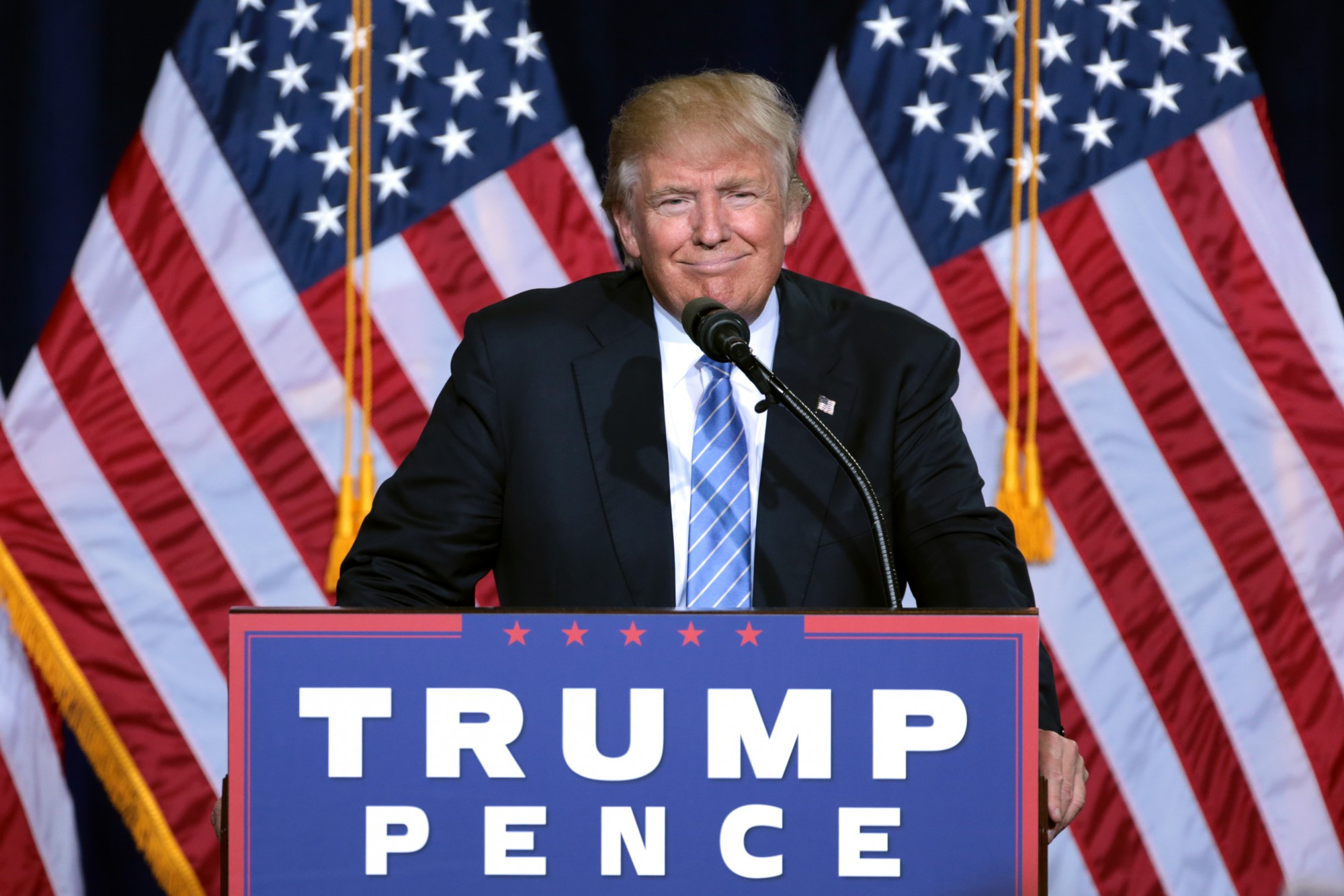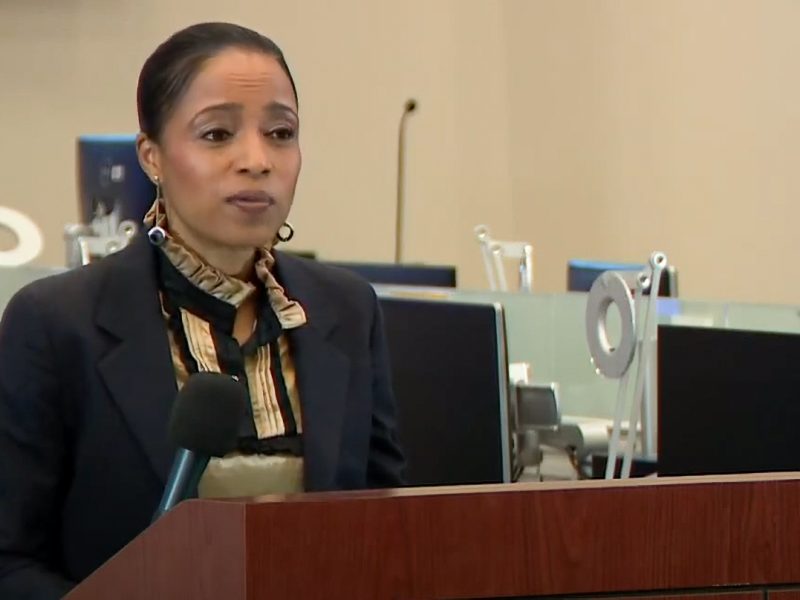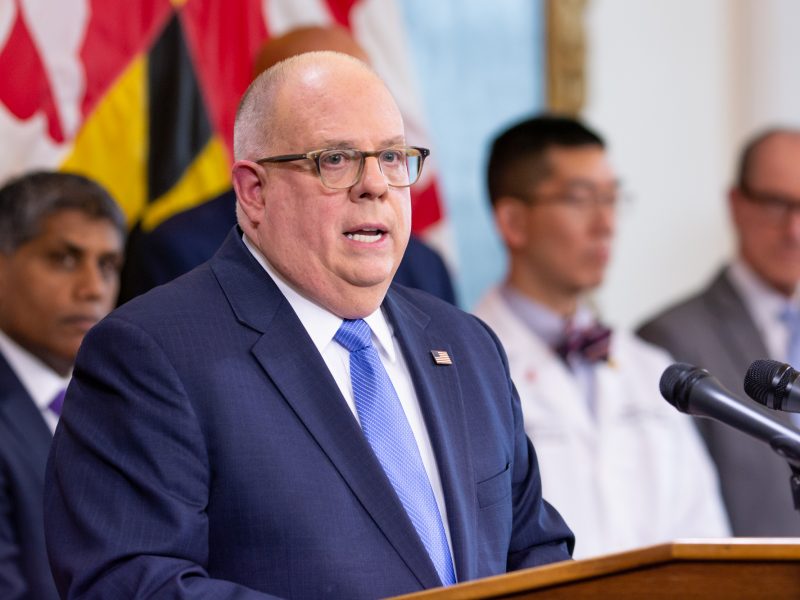On Saturday, President Trump reached his 100th day in office and reflected on his achievements, including the appointment of Neil Gorsuch to the Supreme Court, job creation and a crackdown on immigration, at a campaign-style rally in Pennsylvania.
Some University of Maryland student groups oppose many of his initiatives and claim his first 100 days in office lacked any significant improvements, with the exception of a few policies. Others saw some of Trump’s steps as moving in the right direction and hoped for more future bilateral legislation.
Health care
One of Trump’s central campaign promises was to repeal and replace the Affordable Care Act, former President Barack Obama’s signature 2010 policy, also known as Obamacare, that aimed to make healthcare more affordable and accessible. Once taking office, Trump attempted to draft and push through the American Health Care Act, a reformed policy also known as Trumpcare, within the first few months of his presidency.
Trump faced setbacks in March when House Speaker Paul Ryan withdrew the bill from the House of Representative after it couldn’t gain enough support among Republican lawmakers. If the bill passed, the government would no longer have penalized Americans for not having health insurance, but insurance companies would be required to charge a penalty to those who attempted to purchase a health care plan after going without one for more than two months, the Los Angeles Times reported. It also meant potentially cutting $1 trillion in federal Medicaid spending and denying extra aid for lower-income Americans by eliminating the current subsidy system, which helps them offset their premiums.
Steven Clark, president of this university’s College Republicans chapter, said some members of the group were disappointed with the early failed attempts to replace the Affordable Care Act.
“Not everyone supported the law, but I think everyone agreed that something needs to be done about the Affordable Care Act,” the sophomore government and politics major said. “Finally getting something done on that needs to happen soon.”
House Republicans have drafted a new version of a health care plan and are working on gaining enough support to bring it to the floor, The Washington Post reported.
Forty percent of Americans want to keep the Affordable Care Act but make significant changes, while 30 percent want to repeal and replace the law and 26 percent want to keep the law as is, according to an April Gallup poll.
Foreign policy
Although Trump vowed during his campaign to not further embroil the United States in the Syrian civil war, he reversed his position in response to a chemical attack in April that killed more than 80 people.
Clark said many College Republican members supported Trump’s airstrikes.
Michael Brennan, a member of Our Revolution UMD — a progressive student activist group that evolved from Terps for Bernie — said Trump’s promise of a non-interventionist approach to foreign policy was one of the few things his group agreed with, adding that he thinks Trump should take a more “humanitarian approach.”
Trump has also recently taken a more “aggressive stance toward North Korea and their nuclear ambitions,” which many College Republicans agree with, Clark said. North Korea has recently increased missile tests, attempting at least nine launches since Trump was inaugurated in January, CNN reported.
[Read more: Sen. Ben Cardin slammed Trump’s foreign policies during a discussion at UMD]
In response, Trump tweeted for China to “solve the North Korean problem” by putting economic pressure on the country. But after a meeting with Chinese President Xi Jinping, Trump realized the relationship between North Korea and China was more complicated than he thought, he told The Wall Street Journal.
Yusuf Mahmood, president of this university’s chapter of Young Americans for Liberty, said “it’s shocking that he didn’t realize how complex things were before he got into office.”
“Trump’s first 100 days have proven that he is not competent as a leader,” the sophomore economics and philosophy major said. “He clearly knows nothing about foreign policy.”
Brennan, a sophomore government and politics major, added that he was concerned about the relationship between North Korea and the U.S.
“His tactic has been [to] rise tensions abroad to take attention away from the messed up things he’s doing domestically,” Brennan said.
Immigration
During his campaign, Trump promised to crack down on immigrants entering the country illegally, deporting as many as 11 million undocumented immigrants and building a wall along the U.S.-Mexico border.
While Trump said in February he would not target those protected under Deferred Action for Childhood Arrivals — a federal program allowing immigrants who came to the country as children to stay in the U.S. in two-year blocks — Juan Manuel Montes Bojorquez is suing the U.S. government, claiming he is covered under DACA and was improperly deported to Mexico in February.
There are 113 students at this university who are covered under DACA as of fall 2016.
[Read more: Trump’s administration leaves DACA but continues crackdown on illegal immigration]
Erica Fuentes, Political Latinxs United for Movement and Action in Society president, said this was an “obvious violation of his right to due process.”
“It just shows that this administration doesn’t care about abiding by the law,” the senior government and politics major said. “There’s no rule of law when it comes to those issues now. As an immigrant community, we’re really just trying to protect our most vulnerable and making sure we’re holding [Immigration and Customs Enforcement] officials accountable.”
Other student group members also opposed Trump’s immigration bans. Shortly after his inauguration, Trump rolled out an executive order banning citizens from seven Muslim-majority countries from entering the U.S. for 90 days, as well as indefinitely banning Syrian refugees. A federal judge halted the order, leading Trump to issue a revised ban in March that was also blocked in federal court.
Jake Polce, president of this university’s College Democrats chapter, said he was confident the courts would continue to block the ban, adding that Trump has failed to gain congressional financial support for his border wall. Democratic lawmakers submitted a spending plan to Republicans in April that included money for border security as long as it did not help fund a wall, The Post reported.
“It’s been one blow to his campaign promises and to his administration … at a time,” said Polce, a junior government and politics major. “An important role that Democrats play now is pointing out that his campaign promises are not coming to fruition.”
Environment
Trump has also begun taking steps to roll back environmental regulations within his first 100 days, allowing oil and gas companies more leeway to conduct their businesses. A Trump executive order changed rules guiding carbon emissions and removed a mandate for federal officials to take climate change into account when making decisions, among other initiatives, The Post reported.
“[Trump] doesn’t really have any accomplishments,” Polce said. “The ones that they like to tote is that they rolled back desperately needed environmental protections, helping their friends in big oil, which obviously we are upset about.”
Willem Klajbor, a co-director of the Student Government Association’s Student Sustainability Committee, said he would like to see a greater understanding among the current administration regarding climate change science and a greater effort to protect natural resources, especially the Chesapeake Bay. Trump’s proposed budget would wipe out federal funding for the Environmental Protection Agency’s Chesapeake Bay Program.
Klajbor added that Americans concerned about the environment shouldn’t give up on Trump, who announced Saturday that over the next two weeks, he would detail how the U.S. will approach the Paris Agreement, a deal among nearly 200 countries aiming to lower greenhouse gas emissions.
“There’s still time for him to improve and a lot of the damage hasn’t been done just yet,” said Klajbor, a junior economics and environmental science and policy major. “While our current reality is pretty scary and a little bit gloomy right now, I think there’s room for hope in the environmental policy arena.”



